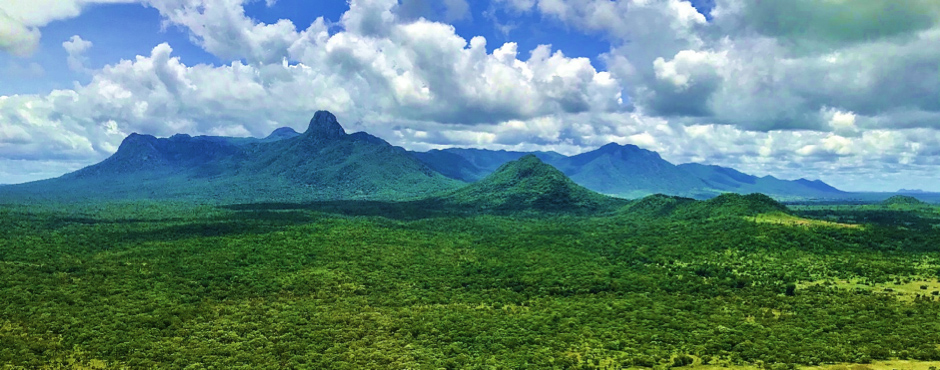Mozambique leading the way in identifying KBAs at a national scale
Mozambique is one of the first nations to make a comprehensive assessment of its Key Biodiversity Areas (KBAs), applying the KBA Standard and Criteria across multiple taxonomic groups. A process that started in 2019 and supported by USAID through its SPEED+ project, this effort is a considerable achievement involving the collaboration of more than 20 national institutions from the government, research, education, conservation partners, civil society and the private sector, with the contribution of more than 100 national, regional and international experts. Twenty-nine KBAs were identified and delineated, covering a total area of about 139,947 km2, with 25 on land and four in the marine environment. The terrestrial KBAs occupy 17% of Mozambique’s continental territory and the marine 1% of the country’s Exclusive Economic Zone (EEZ).

While more than 16,000 KBAs exist in the World Database of KBAs, many of these have been identified for birds only. The KBA Programme is working through the KBA Partnership to encourage the formation of KBA National Coordination Groups in countries to work on making such national assessments. Mozambique established its KBA National Coordination Group in 2019, which is led by the Ministry of Land and Environment, and then pulled together a set of teams to tackle each of the following groups: mammals, birds, reptiles, amphibians, plants, freshwater fish, insects, and marine biodiversity. The work took two years to identify potential trigger species for KBAs, confirming their presence at a site and formally proposing the sites to the KBA Secretariat and there is a second phase planned to map and identify KBAs for ecosystems and to undertake biological surveys of sites thought to be likely candidates as KBAs.
Mozambique is incorporating these 29 sites in its National Territorial Plan and in its National Marine Spatial Plan as areas where harmful development should be avoided and will be using it to guide protected area expansion in the country. Besides that, under the new draft of the biodiversity offsets regulations, KBAs are proposed as offset receiving areas. KBAs will also be preferential areas for a future national biodiversity monitoring program.
For more information see here.